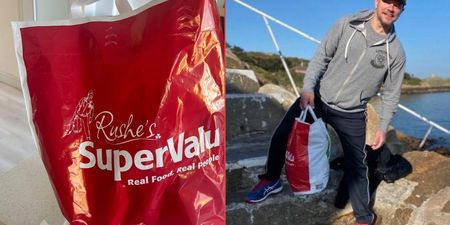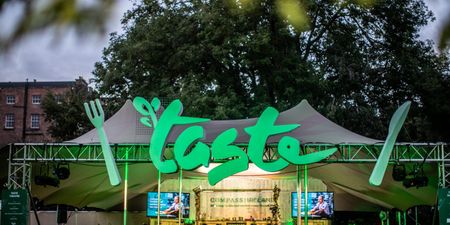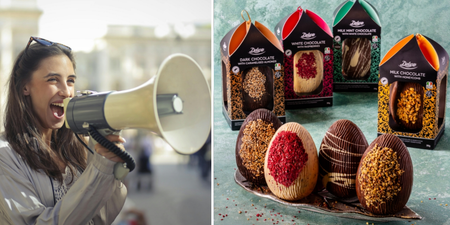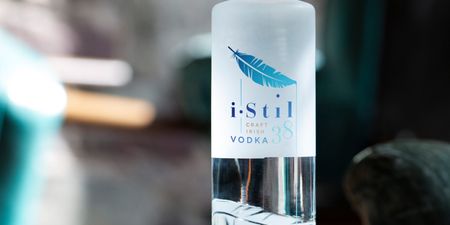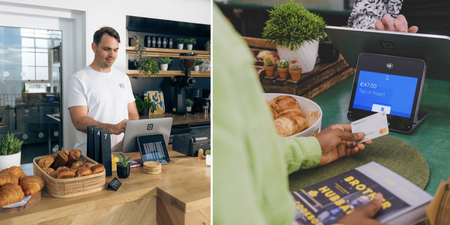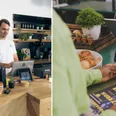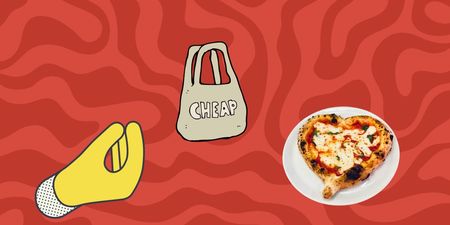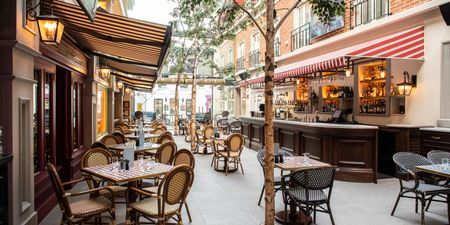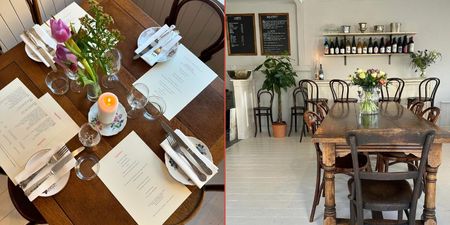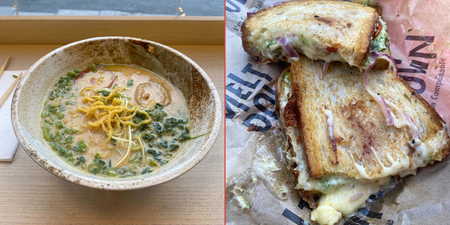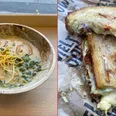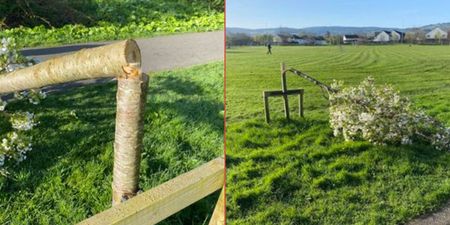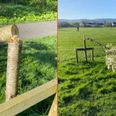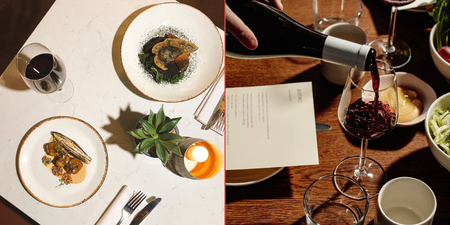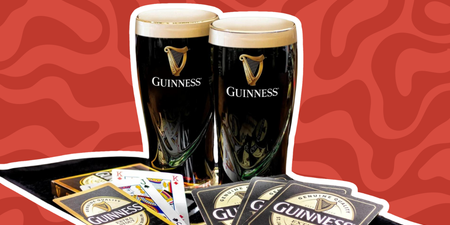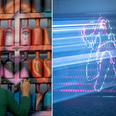This Christmas, we’ve teamed up with Focus Ireland to share some of the incredible stories from people who have experienced homelessness. In the first nine months of 2018 Focus Ireland helped more than 13,000 people, a 6% rise in a year. Focus Ireland prevents people from experiencing homelessness and helps those impacted by homelessness to find a stable home. These are personal stories, from childhood to adulthood, of loss, poverty, resilience and hope; stories that have been written as a result of collaboration between Catherine Dunne and Focus Ireland. We thank sincerely all those who have chosen to share their stories.
Julie’s Story
Julie will never forget her early years growing up in Co Wexford. ‘We were in the middle of the countryside,’ she recalls, ‘the middle of nowhere, really – there weren’t even any lights along the road.’
It was a scary place to be at night, even in the crowded company of nine siblings.
When Julie was ten, her father died. She realised as a child that something also happened to her mother as a result of that loss. She says she put little bits and pieces of information together afterwards, but only understood what they meant when she became an adult.
‘Now, I think the poor woman had a complete nervous breakdown,’ she says. ‘We were left destitute after my father died. There was no Social Welfare back then. We had nothing. The financial strain must have been unbearable.’
Unable to survive, or feed her family on the pittance she was earning locally, Julie’s mother eventually left her and two of her siblings in the care of a nearby convent while she went to London to look for work. Julie is still astonished at the bravery of that act. She now understands her mother’s desperation to provide for her family.
When Julie and her brothers eventually joined their mother in London, where she’d found a basement flat close to an uncle, she remembers being fascinated by the traffic lights along the street. As a child, she saw only their magic.
‘Imagine!’ she says, ‘from a country road with nothing but shadows to the bright lights of London – what a thrill! We used to look out the windows, waiting for the traffic lights to change. All those colours! It was like Christmas every day.’
But life was never easy. London was big and busy and impersonal and it wasn’t long before Julie’s mother found herself unable to cope with work, the children, the cost of living and the strangeness of being away from home.
And so the family made its way back to Ireland.
Once they were home, Julie and her brothers and sisters spent a number of years in an orphanage.
‘That place was a complete isolation from the real world,’ she says. ‘We didn’t know how to mix properly with people. We had no idea what life was all about, or how to handle ourselves.’ She pauses for a moment, her face suddenly sad. ‘If a fella was kind to me back then, I mistook it for love.’
Julie became pregnant at a young age. While she waited to give birth, she lived in a ramshackle mobile home on her brother’s farm, but he was volatile and unpredictable and Julie was terrified of his rages. His tenuous goodwill towards his sister broke down around the time Julie’s baby was due. She had to find alternative accommodation, and fast.
She moved to a hostel in Dublin’s city centre, with her ten-day old baby. And so began a series of moves, of temporary homes, of the anguish of not knowing whether she and her baby were going to have a roof over their heads.
Over the following years, the stresses and strains of homelessness took their toll. Julie was admitted to St. Ita’s in Portrane – the first of several stays in psychiatric hospitals over the years. She spent six weeks there and one day, a nurse came and told her that a social worker was on the phone for her. Julie was puzzled: why did a social worker want to speak to her?
‘Does she know you’re being discharged today?’ the nurse asked.
Julie was shocked. No-one had told her that her time in St. Ita’s was at an end. She had no idea that her treatment was finished. She began to panic. ‘I kept thinking: where the heck am I supposed to go now? I don’t have a home. I’ve nowhere to live.’
A kind patient offered to help, and gave her a telephone number.
Julie remembers calling her from a phone box. ‘I was on O’Connell Bridge,’ she says. ‘I didn’t know Dublin well at all at that time, but she gave me directions to where I could get the number 50 bus.’ Julie smiles at the memory. It was a great kindness, she says, but of course, it was far from being any kind of secure accommodation.
Around this time, Julie’s three children were being cared for by nuns. While visiting them, she learned of a new drop-in centre that was just opening.
This led to her meeting with Sr Sheila, her ‘saviour’.
Julie has enormous respect for Sr Sheila, who works behind the scenes and for Sr Stan. ‘They helped me and so many other people,’ she says. She is hugely grateful to both of these extraordinary women: they and Focus Ireland helped her secure her now permanent home. Despite the challenges of poor health, Julie feels ‘lucky, blessed’, even. Her mobility is vastly reduced from what it was. A neurological illness makes walking difficult and often painful, and a recent accident causes even further problems. She accepts that she herself was responsible for causing the accident. A moment’s distraction while crossing the road meant that she suffered serious injuries and needed hospital care as a result.
But Julie feels that this accident, along with the death of one of her four children, ‘the cruellest loss of all’, became turning points in her life.
She was forced to draw on all her considerable reserves, she says, and she agrees that she showed great strength of character during her recovery.
She was determined to stay positive and make the most of her future.
Julie reflects that she has moved home fifty-three times during her turbulent lifetime. ‘This is by far the best place I’ve ever lived,’ she says. She has a huge sense of security now, and a sense of belonging. ‘There is somebody on reception day and night,’ she says, ‘and I wear a twenty-four hour monitor so there is always somebody to ask if I’m okay.’
And PETE – Preparation for Education, Training and Employment, run by Focus Ireland in Smithfield- is her idea of heaven. She’s completed courses in computers, in personal advocacy which did wonders for her self-confidence. She’s also done a cookery course at PETE and thinks the world of all the staff. ‘Me and art aren’t great,’ she says, her face full of mischief, ‘but I love the relaxation of colouring.’
Julie loves being surrounded by positive people, by those who ‘don’t drag out of me’. She sees beauty everywhere and loves the piano. She has a keyboard and plays what she can by ear, from time to time. Her sense of humour is lively, ever-present.
She manages well at home, in her apartment. ‘I do what I can, and what I can’t do doesn’t worry me.’
Fifty-three moves were incredibly disruptive for Julie. ‘But I’m settled now,’ she says, ‘this is my forever home.’ Julie pauses for a moment, ‘I’m lucky,’ she says. ‘I feel so fortunate, so thankful to Focus Ireland. After everything I’ve been through, I’m finally home.’
Every 8 hours a family is made homeless in Ireland. Together we can change this. Please help today by visiting focusireland.ie to make a donation, calling 1850 204 205 or Focus Ireland’s Instagram. Visit our hub for more information.
Note: All imagery sourced from stock.







